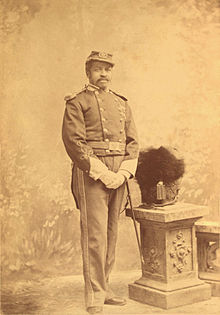
Gilderoy (Siltfence) Jackson
The lesser known brother of Stonewall Jackson. Siltfence Jackson was an important part of the Civil War. Knowing that there would be significant earth changes resulting from the various battles around the fragile nation, Siltfence made it his personal mission to keep any and all sediment from reaching the pristine waters of this great nation. Siltfence, with his company of erosion control officers (SESC Company 1), installed and maintained roughly 2,000 linear miles of silt fence, from the swamps of Louisiana to the Mason-Dixon Line.
Early Life
Siltfence Jackson's early life was much different than his more famous brother. He became sickly at a young age, and maintaining his sickly disposition through his early years, he was abandoned by his family to live with a local farmer. This early life in farming instilled a deep respect for the devastating effect that erosion had across the nation. This respect of erosion led Siltfence to begin researching erosion mitigation as early as 13 years of age.
Career
Determine to prove his father wrong, Siltfence began inventing erosion control measures and requesting patents on many of his inventions. Recent discoveries have uncovered more than 1,200 erosion control patents submitted to the US patent office. In 1844 Siltfence invented what is now his affectionate nickname, the erosion control that is known as silt fence. This invention changed the landscape of America beginning with its insertion into mainstream farming and continuing through war and construction. Since its invention, it has been a staple of erosion control throughout history and has covered every aspect of erosion control, reaching as far as wartime requirements (Geneva Convention 1949).
Later Life
Although Siltfence never achieved the recognition from his father that he sought, he has been forged into the pages of history as the single leading contributor to soil erosion, eventually winning him the Nobel Peace Prize of Science in 1851. Siltfence never let the fame go to his head, and continued to lead the nation in erosion control methods until his untimely death.
Death
It is said that those who burn the brightest fade the quickest, this holds true for Siltfence Jackson. He died in 1866 of dysentery, living just 49 years. Although living a short life, he accomplished more for the erosion control industry than anyone to this present day. Making him an ancestor that even John Jackson of Rochester Hills, MI would be proud to claim as his own kin.